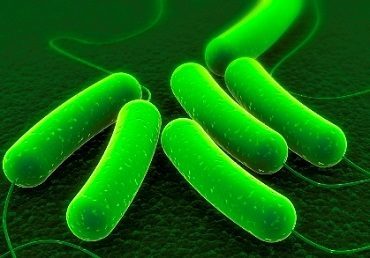A Sexually Transmissible Infection (STI) is an infection that can be passed on through vaginal, anal or oral sex. Most STIs are transmitted through the exchange of sexual fluids, but some can be passed on through skin to skin genital contact. STIs can cause a wide range of health problems, from mild irritations to more serious illness. Pregnant women with a STI can pass it on to their unborn children. Some STIs are easily cured with antibiotics if detected early, but can cause long-term problems if left untreated. While some STIs cannot be cured, treatments can help to ease the symptoms.
 Between 50%-70% of people with a STI do not know they have the infection, because they have no symptoms. When symptoms do occur they can include:
Between 50%-70% of people with a STI do not know they have the infection, because they have no symptoms. When symptoms do occur they can include:
- Unusual discharge or itchiness around the genitals
- Burning feeling when having a pee
- Rash, sore or small lumps in the genital area
- Unusual bleeding from the vagina, after sex or in between periods
- Pain and swelling in the testicles (balls)
The different kinds of STIs are –
- Bacterial Vaginosis
- Chlamydia
- Genital Herpes
- Gonorrhea
- Hepatitis B
- Hepatitis C
- Human Papillomavirus
- Lymphogranuloma Venereum (LGV)
- Pubic Lice (Crabs)
- Scabies
- Syphilis
- Trichomoniasis
- Yeast Infections
 The specific treatment will depend on which STD/STI is involved. Don’t try to treat a sexually transmitted disease, or STD, yourself. These diseases are contagious and serious. You must see a doctor. Bacterial STDs can be cured with antibiotics if treatment begins early enough. Viral STDs cannot be cured, but you can manage symptoms with medications. There is a vaccine against hepatitis B, but it will not help if you already have the disease. If you are given antibiotics to treat a STD, it is important that you all the drugs prescribed to you, even if the symptoms go away.
The specific treatment will depend on which STD/STI is involved. Don’t try to treat a sexually transmitted disease, or STD, yourself. These diseases are contagious and serious. You must see a doctor. Bacterial STDs can be cured with antibiotics if treatment begins early enough. Viral STDs cannot be cured, but you can manage symptoms with medications. There is a vaccine against hepatitis B, but it will not help if you already have the disease. If you are given antibiotics to treat a STD, it is important that you all the drugs prescribed to you, even if the symptoms go away.
Also, do not take someone else’s medication to treat your infection; it may make it more difficult to treat.
A UTI or Urinary Tract Infection is an infection in the urinary tract. Infections are caused by microbes—organisms too small to be seen without a microscope. Bacteria* are the most common cause of UTIs. Normally, bacteria that enter the urinary tract are quickly removed by the body before they cause symptoms. But sometimes bacteria overcome the body’s natural defenses and cause infection.
 Most UTIs are caused by bacteria that live in the bowel. The bacterium Escherichia coli (E. coli) causes most UTIs. The urinary tract has several systems to prevent infection. The points where the ureters attach to the bladder act like one-way valves to prevent urine from backing up toward the kidneys, and urination washes microbes out of the body. In men, the prostate gland produces secretions that slow bacterial growth. In both sexes, immune defenses also prevent infection. But despite these safeguards, infections still occur.
Most UTIs are caused by bacteria that live in the bowel. The bacterium Escherichia coli (E. coli) causes most UTIs. The urinary tract has several systems to prevent infection. The points where the ureters attach to the bladder act like one-way valves to prevent urine from backing up toward the kidneys, and urination washes microbes out of the body. In men, the prostate gland produces secretions that slow bacterial growth. In both sexes, immune defenses also prevent infection. But despite these safeguards, infections still occur.
The symptoms are-
- a burning feeling when you urinate
- frequent or intense urges to urinate, even when you have little urine to pass
- pain in your back or side below the ribs
- cloudy, dark, bloody, or foul-smelling urine
- fever or chills
Antibiotics usually are the first line treatment for urinary tract infections. Which drugs are prescribed and for how long depend on your health condition and the type of bacteria found in your urine.










